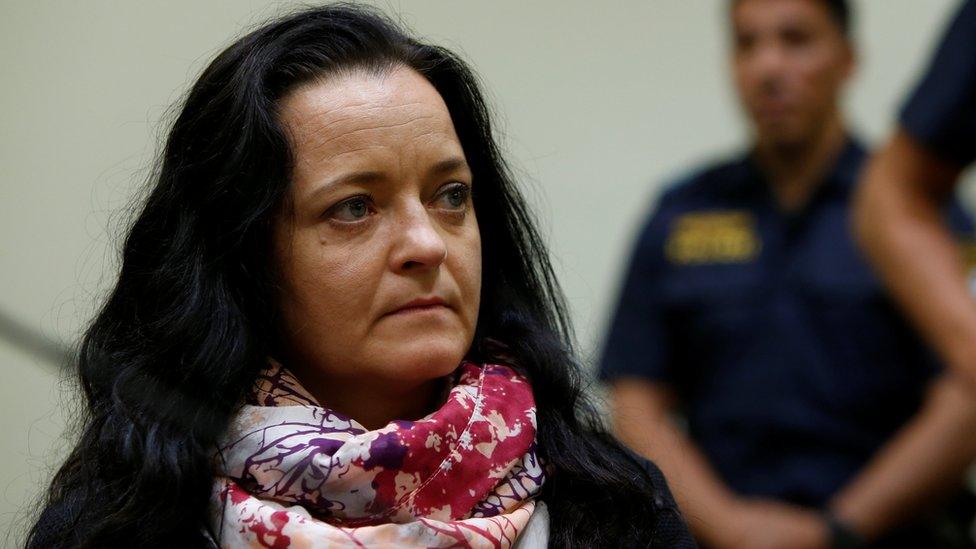Walter Lübcke killing: Suspect with far-right links confesses
- Published
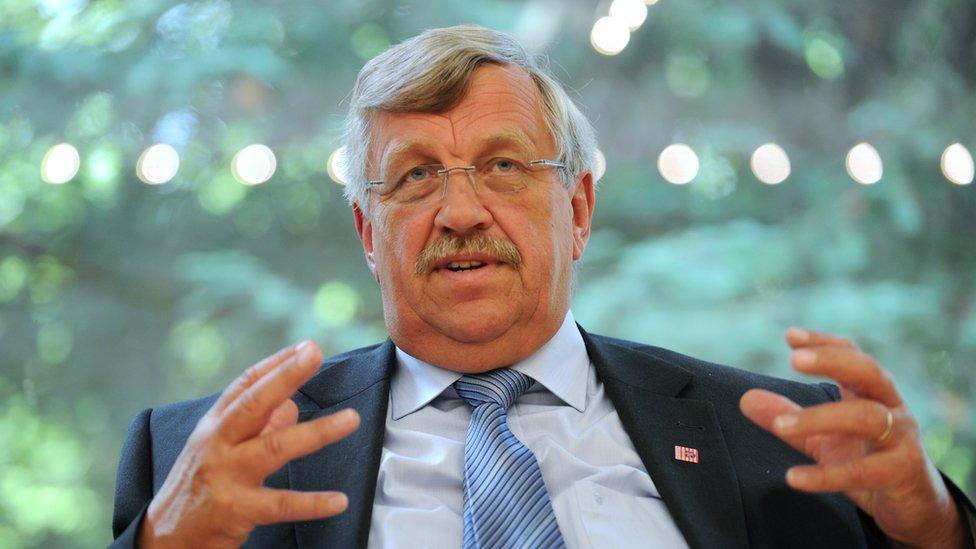
Investigators suspect a political motive in the killing of Mr Lübcke
The suspect in the fatal shooting of a pro-migrant German politician has confessed, German politicians said.
Walter Lübcke, 65, was found in his garden on 2 June, shot in the head at close range. He died soon afterwards.
The suspect, identified only as Stephan E, 45, reportedly has contacts in right-wing extremist circles, and said he acted alone.
But Germany's interior minister said the investigation "of this political murder is not yet complete".
Investigators are reportedly still searching for any possible accomplices.
The country's chief federal prosecutor, Peter Frank, gave no details about the motive when he briefed politicians, German news agency DPA reported.
But the crime was being considered politically motivated, the agency said - indicated by the fact that federal prosecutors would continue investigating rather than handing the case back to local police.
Stephan E had been arrested after DNA evidence linked him to the scene of the crime - the village of Istha, near the central city of Kassel.
One German news publication, Der Spiegel, reported that Mr Lübcke had been killed over the building of a new refugee centre in the area.
The news magazine reported that Stephan E had even been present at a controversial town hall meeting on the topic several years ago, video of which had widely circulated online.
At the meeting, he said citizens had to stand up for Christian values. "Whoever does not support these values can leave this country any time, if he doesn't agree. This is the freedom of every German," he said.
A leading advocate for migrants' rights in his home area, and a member of Chancellor Angela Merkel's CDU, Mr Lübcke had received death threats in the past.
He was given personal protection in the wake of the controversy, but threats against him had subsided.
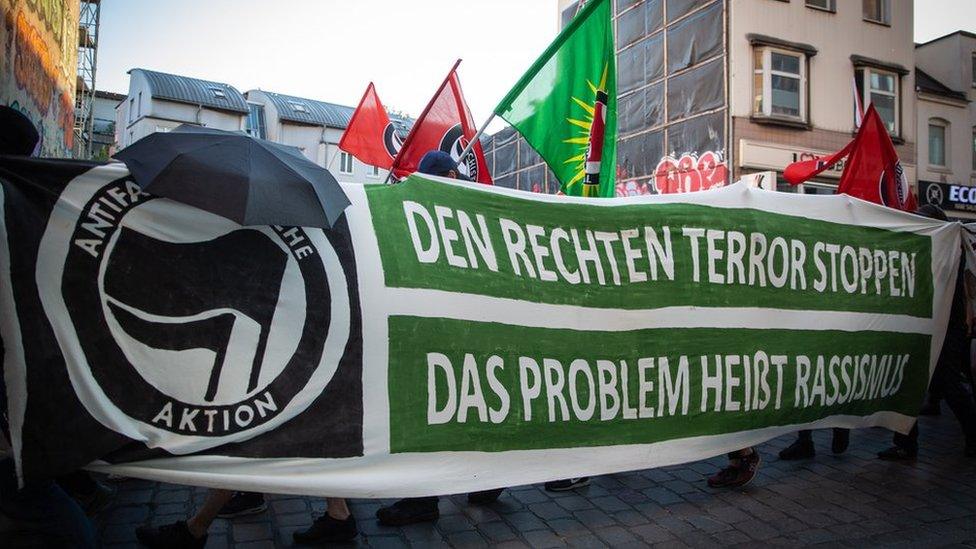
Demonstrations against far-right extremism were held after the killing
His death shocked Germany, which has grappled with a rising tide of support for far-right politics in recent years. If a political motive of far-right extremism is proven, it would be the first such killing of a politician in modern Germany.
"This targeted assassination... documents a new dimension of right-wing extremism," said Mathias Middelberg, an MP from Mr Lübcke's CDU party.
Far-right groups and networks must be more closely examined, Green MP Konstantin Notz tweeted, warning that focusing on one lone attacker could make "one blind to the connections".
Burkhard Lischka of CDU coalition partner the SPD called for further investigation, saying that right-wing "terrorists" must be judged in exactly the same way as radical Islamist attackers.
- Published20 June 2019
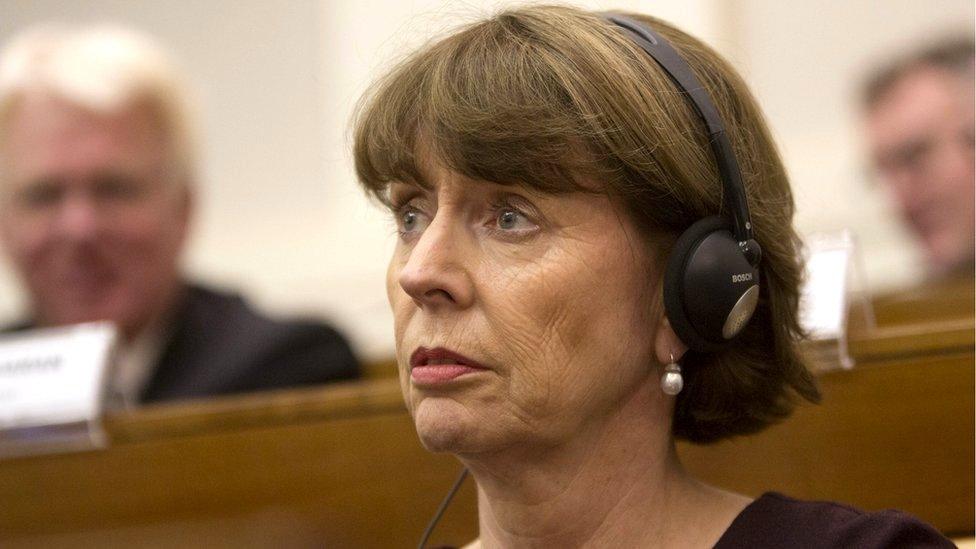
- Published9 June 2019
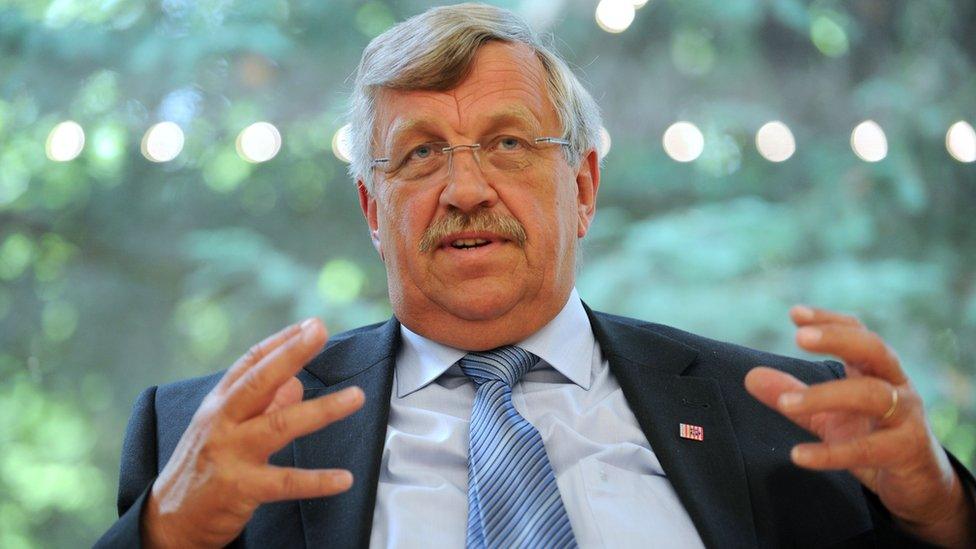
- Published3 June 2019
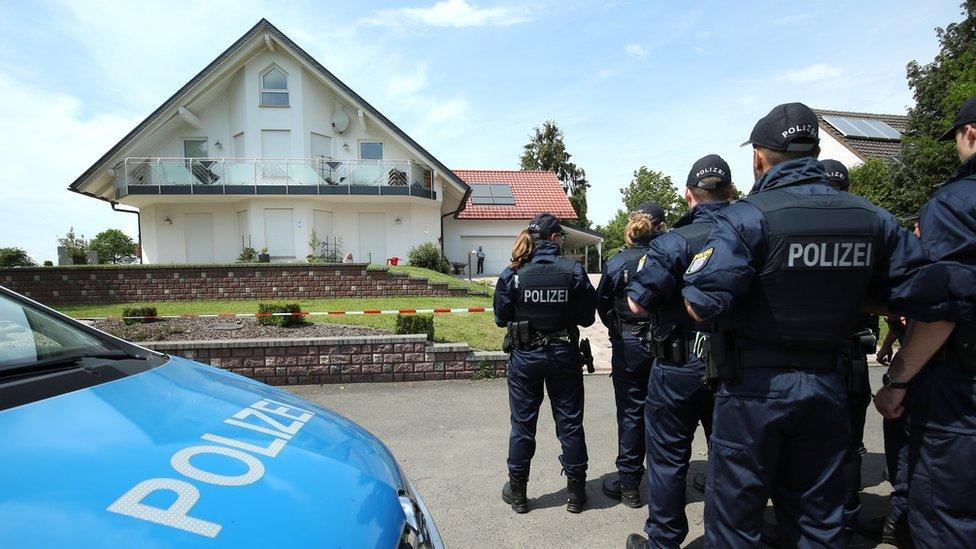
- Published24 June 2019
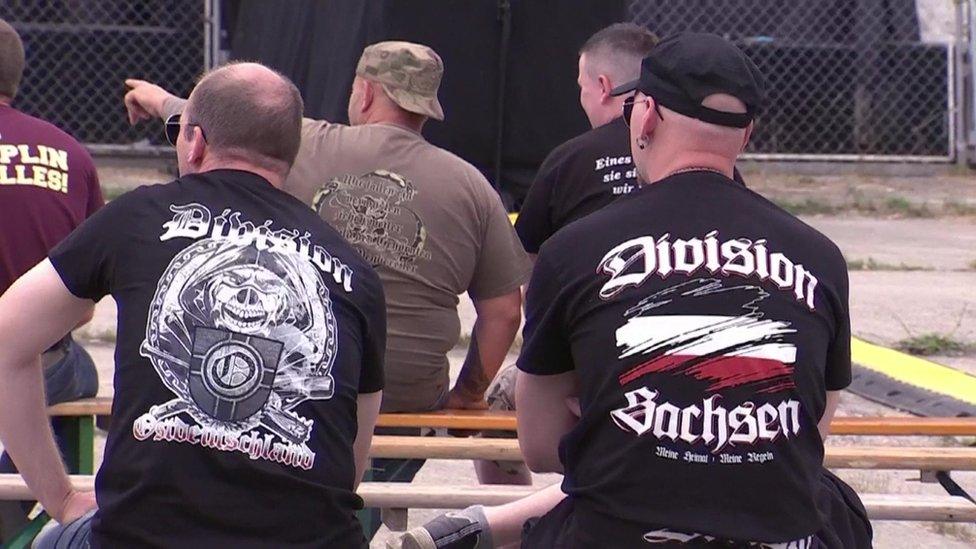
- Published11 July 2018
